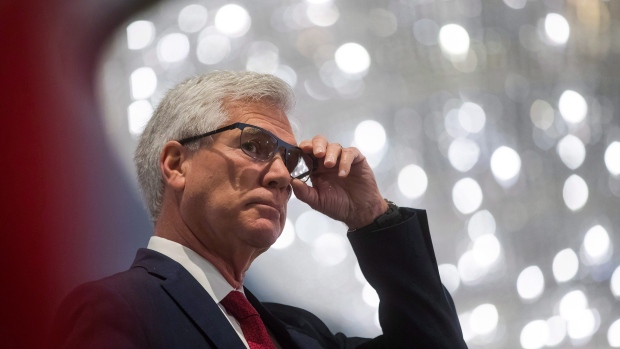Feb 8, 2018
Ottawa will intervene in Trans Mountain dispute if needed: Carr

Canada’s Minister of Natural Resources is vowing to take action if the war of words between British Columbia and Alberta threatens the completion of Kinder Morgan’s Trans Mountain pipeline expansion.
“Premier (John) Horgan of British Columbia says he wants to consult with British Columbians – he is free to consult. What he can’t do – what no province can do – is infringe upon federal jurisdiction leading to the national interest,” Natural Resources Minister Jim Carr told BNN in an interview Thursday.
Carr would not say what action the federal government could take, but said Ottawa remains committed to the Trans Mountain project.
“If they take any action – any regulatory action – which seeks to thwart the national interest as defined by the government of Canada then the government of Canada will intervene,” Carr said.
Last week, B.C.’s NDP government announced it was looking at rules to limit any increase in the import of diluted bitumen until an independent panel can assess the pipeline’s ability to deal with a spill.
On Tuesday, Alberta Premier Rachel Notley retaliated by immediately banning wine imports from British Columbia.
Carr said the Trans Mountain pipeline has Ottawa’s unqualified support and will help Canada diversify its energy markets.
“We think the country needs the expansion of export markets – that’s why we approved the Trans Mountain expansion. Ninety-nine percent of our exports of oil and gas go to the United States. We want to open that up,” he said.
Carr was speaking in Calgary at the announcement of a new project assessment process, which essentially replaces the National Energy Board with a body that will conduct more comprehensive consultations. He says the Trans Mountain project was approved under a more rigorous process that is similar to the new rules unveiled Thursday.
“We knew that the existing regulations wouldn’t be enough. We had court cases that told us they wouldn’t be enough,” Carr told BNN. “So, we added an entirely new layer of consultation through an expert panel and also thorough much deeper consultation with indigenous communities – and then finally made the decision that we believed it to be in the interest of Canadians.”




